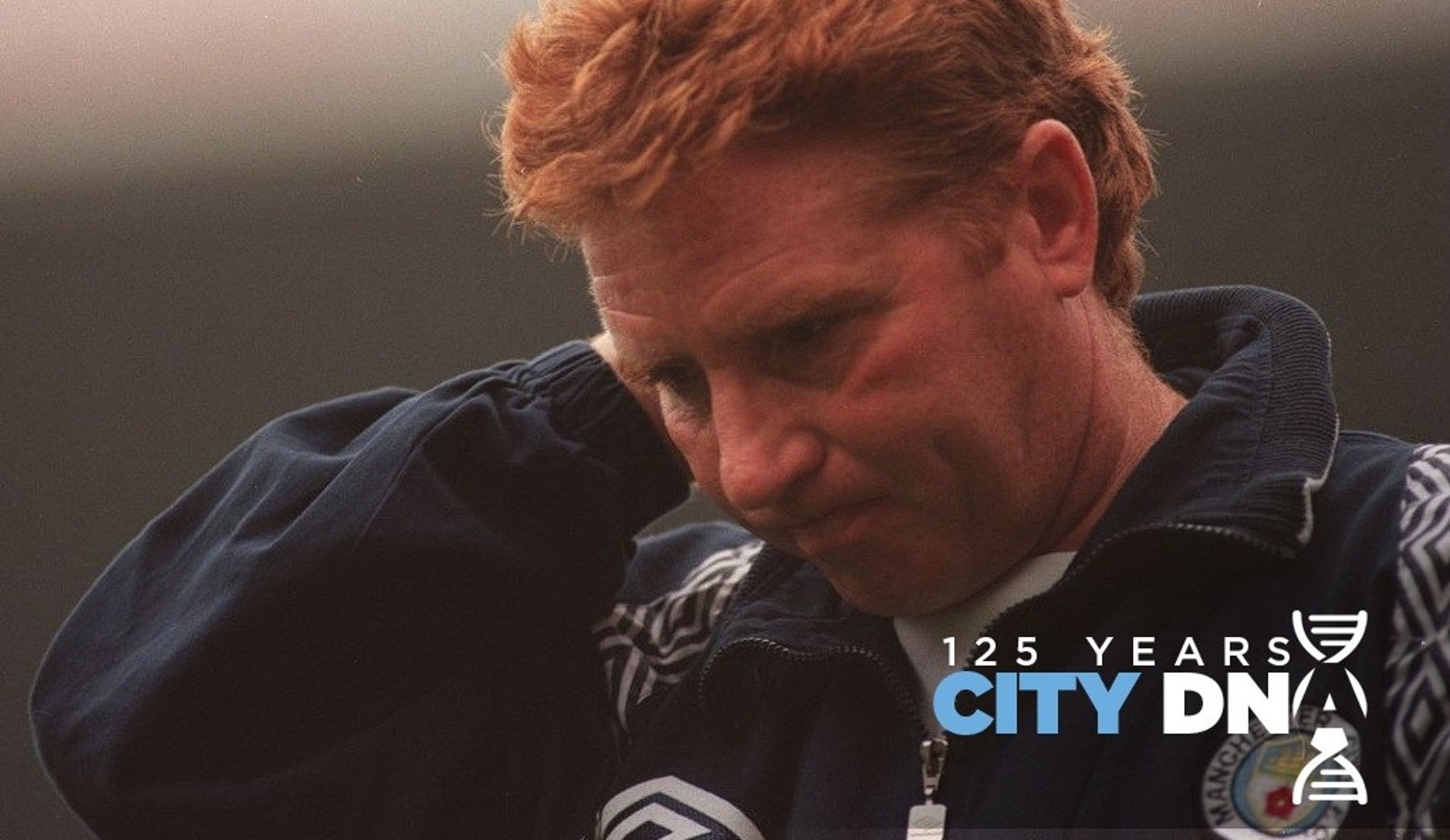For the manager in question - Alan Ball - the song arguably saved the former World Cup winner from a full-on revolt among the City faithful because, quite simply, how could they turn on somebody they serenaded each match?
It was a curious and perhaps unique situation that is unlikely to ever be repeated in a season of huge contradictions.
Of course, a little context is needed here…
Ball, to put it bluntly, was not the manager City fans had wanted.
‘EL MAGO: David Silva book now on sale!
Brian Horton had been sacked after winning over the fans with an exciting brand of football, but when chairman Francis Lee completed his takeover, he wanted a higher profile boss to take the team forward.
The supporters waited… and waited… but whether Lee’s first choice didn’t happen or not, he turned to his old friend Alan Ball who had not had great success in management at any of his previous clubs.
SHOP | Check out our range of retro shirts here
In fact, it’s fair to say the City fans were completely underwhelmed by the appointment. His win rate as a manager hovered around the 30% rate and he had been sacked at Portsmouth and Stoke City.
There was a feeling among supporters that, for whatever reason, this was not a marriage made in heaven.
But Ball had two aces up his sleeve. One was Georgi Kinkladze and the other was… Oasis.
Kinkladze had just been signed and Ball took one training session to realise he had a real gem on his hands.
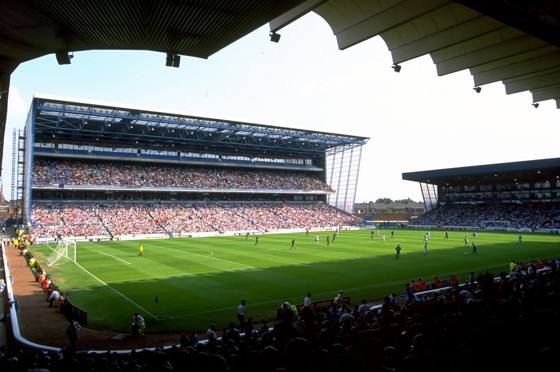
All he had to do, was find a system that allowed him to do his stuff and maybe compensate for the areas he was weaker in.
Ball told a press conference early on his City tenure than Kinky would have fans “hanging from the rafters” to come and see him play – and he was right.
Noel Gallagher said when he first saw him play that he would either win the European Cup for City, or take us down to the fourth tier.
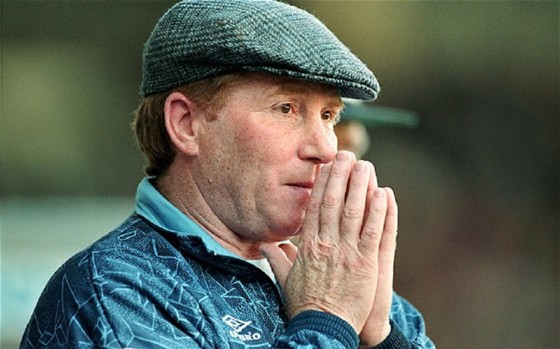
Sadly, the latter would be closer, though Kinkladze wasn’t to blame, and maybe neither was Alan Ball, but some of his decisions weren’t warmly greeted – the exchange of the popular Paul Walsh for Gerry Creaney being one.
The 1995/96 season was full of remarkable contrasts.
City lost nine and drew two of the first 11 Premier League games – two points from a possible 33 – and looked relegation certainties.
So, what happens next? Having just lost successive games to Liverpool in the league and League Cup by an aggregate of 10-0(!), City win four, draw one and lose none of the next five matches – conceding one goal by the way.
Welcome to Manchester City, where the bizarre sometimes become reality.
Kinkladze, by this stage, has the fans eating out of his hand and, Oasis – the biggest thing in British music and fronted by the City-mad Gallagher brothers – release their anthem ‘Wonderwall’ which soars to No.2 in the UK and is a massive worldwide hit.
So, we have maybe the most naturally gifted player in our history; one of the biggest bands in the world releasing what some believe to be their best single and Alan Ball is voted the Manager of the Month.
City fans didn’t know whether to laugh or cry.
Ball had certainly bought himself some time, and when a new chant based on Wonderwall began, he’d guaranteed his position until the end of the season.
The song, briefly, went like this:
“Every run that Kinky makes is winding,
And every goal that City score is blinding,
I said maybe (maybe),
Eike’s gonna be the one to save me (save me),
‘Coz after all – you’re my Alan Ball.”
According to Noel, ‘Wonderwall’ describes “an imaginary friend who’s gonna come and save you from yourself.”
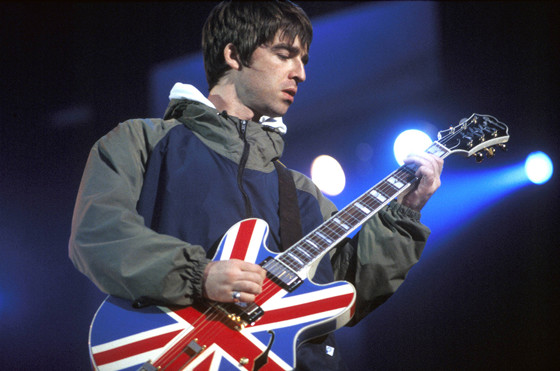
What he made of the association we can only imagine. The question is, apart from that brief run of form, City were entrenched in a relegation dogfight and just two wins from the next 14 games again left the Club facing the drop – but if the fans are singing your name, how can they call for your head?
It would be a contradiction the like of which we’d, er, never seen the like of which.
Of course, Kinkladze then goes and scores one of the greatest individual goals ever seen on these shores in a 2-1 win over Southampton, to further muddy the waters.
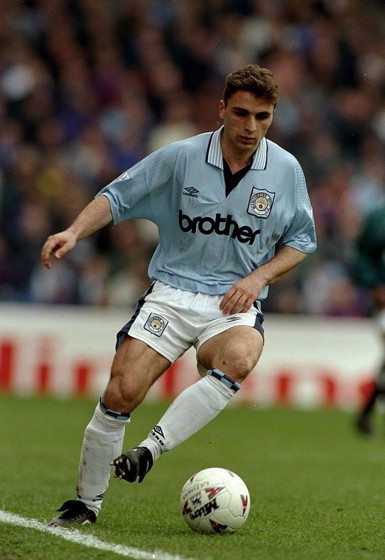
The song continued to be sung and with 1.3m copies sold, was still being regularly played on the radio.
But just when this bizarre season could get any stranger, Oasis play a series of concerts at Maine Road in April 1996.
The weight of the stage, so urban legend has it, sank the turf slightly at the Platt Lane end of the ground.
So, having beaten Sheffield Wednesday and Aston Villa, City’s final game of the season was at home to – the city that gave birth to The Beatles and the inspiration behind Oasis – Liverpool.
City needed to better Southampton or Coventry’s result to complete a remarkable escape but when a Steve Lomas own goal went in after just six minutes, some blamed the state of the pitch at the Platt Lane end as a contributory factor.
Imagine – Oasis inadvertently having a hand in City’s relegation…
Of course, that’s not quite true and though Ball’s men fought back from 2-0 down to 2-2, there was still that bizarre ending when Lomas tried to waste time in the corner as the seconds ticked down despite the fact that another goal was needed.
False information that a draw would be enough somehow found its way to the players – until Niall Quinn ran down the line shouting that, as things stood, a draw was not enough.
By then, it was too late and the whistle went for full-time and City were down.
As for Alan Ball, the song was never heard again and the City boss was fired a couple of games into the 1996/97 campaign.
Sadly, Ball died in 2007 aged just 61. Things didn’t work out for him at City, but he gave Kinky the freedom to play as he wanted and had an Oasis song tailored for him and not everyone can claim to have had that…

